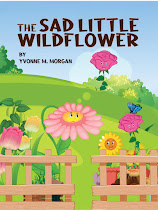
Foreshadowing is a literary device used to make the reader wonder. It gives the story a sense of mystery or anticipation. It can also create tension.
According to Literary Devices (1), using this device, “a writer gives an advance hint of what is to come later in the story."
Foreshadowing is a great device to keep the reader involved in the story and the characters.
There are a number of foreshadowing strategies. Below are four of them.
An Approaching Event
An example of this type of foreshadowing is in “Walking Through Walls.” Wang (the protagonist) listens as his friend, Chen, tell how neighboring warriors kidnapped his sister.
The reader surmises or anticipates that there will be an upcoming battle to rescue Chen’s sister.
The Pre-scene
A pre-scene hints at something on the horizon.
Another example might be a new student entering a classroom and another student eyes him up and down. Nothing else happens in that particular scene.
The reader automatically anticipates there will be trouble between the boys down the road.
In an article at Novel Writing Help, “a pre-scene is simply a smaller version of a larger scene to come. They are not significant by themselves, but they imply that there is something more spectacular waiting to happen right around the corner.” (2)
The Loaded Gun
This strategy is attributed to Russian author and playwright Anton Chekhov.
He said, "If you say in the first chapter that there is a rifle hanging on a wall, in the second or third chapter it absolutely must go off. If it’s not going to be fired, it shouldn’t be hanging there." (3)
This type of foreshadowing doesn’t have to use a gun; it could be any object.
For example, suppose a boy is cleaning out the attic of a hundred-year-old home for a neighbor. He finds an old corroded coin. He absent-mindedly shoves it in his pocket.
The reader knows the coin is significant and expects something to happen pertaining to it in the story. If the writer is smart, she will fulfil the reader’s expectation.
The Prophecy
With this type of foreshadowing, a glimpse of misfortune to come from something that happens is given to the reader.
As an example, the albatross is a sign of good luck if seen by sailors. With the reader being privy to this knowledge, a sailor sees one fly over his ship at the midway point on every voyage he’s on. But, on this particular voyage, there is no albatross to be seen.
The implication to the reader is that there is going to be trouble for this sailor and this voyage.
Don’t Overdo It
While adding foreshadowing to your fiction story is an effective writing device, you don’t want to overdo it.
In an article at NY Book Editors, it explains that “to balance your story, there needs to be revelations and circumstances that catch the reader off-guard. If your reader is in a constant state of analysis [over foreshadowing], your pacing will suffer. To strike the perfect balance, introduce hints but then jolt your reader with something unexpected.” (4)
If you’d like to read more about foreshadowing and your fiction writing, check out the references below.
Foreshadowing is an excellent literary device when used properly. As mentioned early, it creates reader anticipation among other things.
This post first appeared at:
https://karencioffiwritingforchildren.com/2018/04/08/writing-fiction-what-is-foreshadowing/
About the Author
Karen Cioffi is an award-winning children’s author, successful children’s ghostwriter, and an author online platform instructor with WOW! Women on Writing. Check out her middle-grade book, Walking Through Walls, and her new picture book series, The Adventures of Planetman: Click here.




